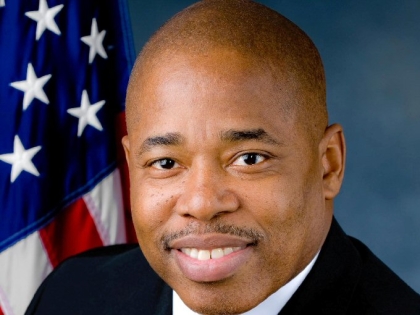
Nys Senator Eric Adams And Civil Rights Attorney Norman Siegel Call Upon The Department Of Education To Adopt
AN EMERGENCY HOT WEATHER STRATEGY FOR PUBLIC SCHOOL STUDENTS THAT IS FAR MORE COMPREHENSIVE THAN COMMON ASPCA GUIDELINES FOR PETS
New York State Senator Eric Adams (D, Brooklyn) joins civil rights attorney Norman Siegel to urge the Department of Education to institute an emergency “Hot Weather Procedure” policy that will take effect whenever the temperature reaches 99 degrees or higher. Senator Adams and Attorney Siegel will recommend emergency procedures that the DOE should implement when the weather reaches unseasonably high temperatures.
Senator Adams states: “Excessively high indoor temperatures present a serious health risk to both teachers and students; young children are especially vulnerable. The human body finds it particularly difficult to regulate its own temperature. Unfortunately, elevated ambient heat conditions can cause a variety of health complications, including heat stroke and heat exhaustion. If the ASPCA can advertise suggestions to protect pets from hot weather, how can we neglect heat safety for our most precious resource, our children?”
Senator Adams distributed a memorandum to the press corps to provide specific suggestions for DOE regulations to manage conditions of extreme pre-summer and summertime heat in our schools. The Senator noted that although the DOE has recognized the importance of dealing with cold weather emergencies, the agency did not have a plan to address periodic heat waves in our public schools. Since global warming, moreover, makes it increasingly likely that we will experience days of excessive heat near the end of school year, the Senator stressed that it was imperative that the DOE create a long-term plan to cope with exceedingly hot days that occur while school is in session.
The Senator proposed immediate adoption of the following recommendations to cope with unseasonably high temperatures (90 degrees or above):
• Install refrigeration units on school roofs to cool the common areas, such as the gymnasium,
cafeteria, and auditorium. These are places where large numbers of students, staff, and
parents congregate on a regular basis.
• Institute half-day schedules.
• Remind staff that excessive heat exacerbates health conditions – intensifies breathing
difficulties, triggers asthmatic attacks, and obstructs normal heart rates. Vigilance is critical.
• Identify and carefully monitor children with asthma and other respiratory conditions.
• Restrict oven use in the cafeteria (oven use can generate ambient temperatures of 120
degrees).
• Instruct cafeteria employees (DC 37) to prepare cold meals.
• Conduct a study to identify specific impacts of hot weather on student health.
Senator Adams further noted that current policy to abate conditions of excessive heat was thoroughly inadequate. In large-group areas, such as cafeterias, auditoriums, and gyms, high-powered electric fans are employed. These devices are usually very noisy and merely circulate air that is already very hot. Even when students, staff, or parents are directly adjacent to one of these fans, there is virtually no relief from the horrific heat conditions.

